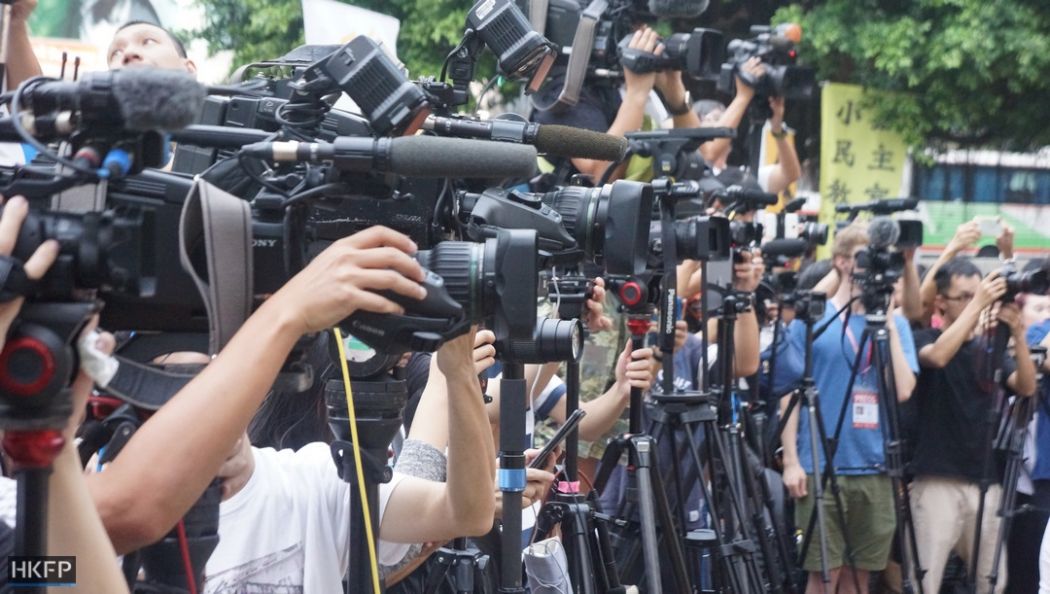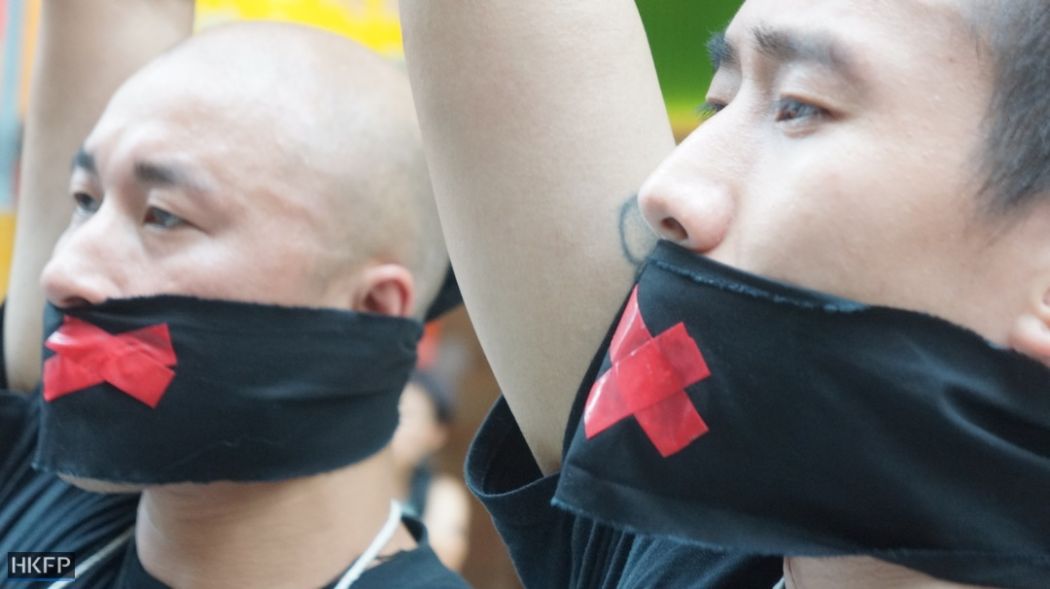China’s crackdown on press freedom poses a direct threat to democracies worldwide, press freedom watchdog Reporters Without Borders (RSF) said in a report released on Monday.
The 52-page report entitled China’s Pursuit of a New World Media Order outlines ways in which Beijing has sought to exert its political influence upon international media to deter criticism and negative coverage – from exporting its censorship model to autocratic states to silencing dissidents through intimidation.

“The purpose of the report is to stir a reaction,” Cédric Alviani, director of RSF’s East Asia bureau, told HKFP. “It is only the tip of the iceberg of China’s influence on media across the world. That is what makes it chilling.”
”In full: Signs of China’s growing media influence in RSF’s press freedom report – Click to view“
- China: the introduction of artificial intelligence television anchor from state-owned news agency Xinhua in November 2018, designed to read “propaganda news items in English,” according to RSF.
- United Kingdom: Chinese state-owned broadcaster CGTN hired over 90 employees in its newly unveiled London hub. Peter Humphrey, a private investigator who was forced to make a “confession” on Chinese state TV in 2013, filed a complaint with UK communications regulator Ofcom against the broadcaster in November, calling for its licence to be revoked for “violating the broadcasting code.”
- South Africa: after journalist Azad Essa wrote a column criticising Beijing’s persecution of Uighurs in Xinjiang for South Africa’s Independent Online in September, all of his future columns were cancelled. Chinese investors have a 20 per cent stake in the website.
- Sweden: in July the Chinese embassy in Stockholm accused Jojje Olsson, a reporter for the Swedish daily Expressen, of “instigating hatred against China,” after he wrote an article about Chinese censorship techniques.
- Cambodia: Hun Sen, Cambodian prime minister has, with the help of Beijing, cracked down on his country’s media, RSF said. His party won all 124 seats in the 2018 parliamentary election, compared with 68 in the previous election.
- Vietnam: in June the country adopted a cyber-security law that resembled one implemented in China the year before.
- Australia: in March the country’s defence department prohibited its personnel from using popular Chinese messaging app WeChat on their phones on security grounds.
- Mexico: in October New York investor H&H Group, connected to China-controlled television network Phoenix Television in Hong Kong, bought Mexican radio station XEWW 690, which broadcasts to southern California – an area with a large population of ethnic Chinese.
- United States: in November Silicon Valley technology company Google suspended plans to develop a censored search engine in China after backlash from rights groups.
The report condemned Chinese President Xi Jinping as an “enemy of democracy, universal values, human rights and press freedom.”
“In the spirit of the Beijing regime, journalists are not intended to be a counter-power but rather to serve the propaganda of states,” Christophe Deloire, secretary-general of RSF, said. “If democracies do not resist, ‘Chinese-style’ propaganda will gradually invade the world’s media, competing with journalism as we know it.”

In a section on Hong Kong, RSF said that press freedom in the city had been eroded, citing ties between Hong Kong media owners with mainland political bodies, threats from the Communications Authority to discontinue media licenses and the sale of English-language newspaper South China Morning Post to Chinese internet commerce company Alibaba in 2016.
Engaging international audiences
RSF said that China is exporting its media model to other countries in an effort to combat “hostile Western forces,” identified as news outlets who do not cover the country favourably.
The report highlights state-owned outlets CGTN, which broadcasts news programmes in 140 countries, and China Radio International, which broadcasts in 65 languages, as evidence of the country’s global media ambitions.
It also said that China has heavily invested in African nations in an attempt to expand its media influence; in particular, through Chinese state-controlled programmes such as CGTN Africa which avoids critical coverage of Beijing.

RSF added that Beijing has invited at least 3,400 foreign journalists from 146 countries on lavish trips to seminars in China to attract favourable coverage.
‘Trojan horse policy’
Beijing has implemented a “Trojan horse policy” in order to insert propaganda advertorials in foreign publications which include the Wall Street Journal and the Daily Telegraph, according to the watchdog.
China Watch, an English-language state-sponsored insert, has reportedly been inserted into 30 major daily newspapers with a circulation of 13 million copies – 1.7 million of whom are in the New York Times and 6.6 million in Mainichi Shimbun.
“China Daily, the state-run English-language newspaper, has struck deals with at least 30 foreign newspapers – including NY Times, WSJ, WP & UK Telegraph – to carry 4 or 8-page inserts called China Watch, which can appear as often as monthly.” #propaganda https://t.co/C4exZBAZEX pic.twitter.com/nljqQI5Zvw
— Fenella Sung (@FenellaSung1) January 31, 2019
Other methods of influence outlined by RSF include the country’s heavy investment in foreign media such as spending 3.3 billion Euros in acquiring shares across various European media outlets.
In October 2018, New York investment firm H&H Group with links to Beijing-controlled Phoenix TV in Hong Kong acquired Mexican radio station XEWW 690, capable of reaching all of southern California – an area with a large Chinese diaspora – with the aim of targeting the community, RSF said.

Additionally, the NGO said that social media platforms have been threatened with being excluded from the Chinese market if they do not comply with the country’s censorship practices, referencing American technology giant Apple, who in 2018 yielded to government pressure by removing 25,000 “illegal” gambling apps from its Chinese store.
The report urged media companies in democratic countries to guard against China’s expanding influence by publicly identifying shareholders and introducing Chinese-language content, such as ABC’s AustraliaPlus.cn.
China ranks 176 out of 180 countries in the NGO’s 2018 World Press Freedom index.

